How To Recognize A One-Sided Friendship: 18 Definitive Signs
You know that feeling when you realize you’ve been carrying the friendship on your back like an overstuffed tote bag? Welcome to the world of one-sided friendships, where you play friend, therapist, event planner, and sometimes even the entire audience—all for someone who might not even notice when you’re missing. Sound familiar?
This list is your guidebook through the subtle (and not-so-subtle) signs that you’re in a friendship that feels less like a duet and more like a one-person show. I’m talking real-life red flags, with a side of wit and a dash of hard-earned wisdom.
There’s no judgment here—just a celebration of that moment when you finally say, “Wait, do I really need to keep doing this?” So grab your favorite snack, settle in, and let’s get honest about those tiny (and huge) ways a friendship can tip out of balance—and what it feels like to reclaim your time, energy, and peace of mind.
Ready? Here are eighteen signs you’ll want to keep an eye on, friend-to-friend.
1. They Treat Every Conversation Like It’s Their Personal Talk Show

Have you ever noticed that every time you meet up, your friend launches into a monologue about their life, their drama, their favorite brand of almond milk—without so much as a “How are you?” in sight? You’re not alone. It starts to feel like your role is to nod and throw in encouraging noises while your own stories collect dust in the back of your mind.
This kind of friendship turns you into the equivalent of a living, breathing audience. You might find yourself rehearsing things you want to share, but somehow the conversation never circles back. It’s as if there’s a force field around your feelings and experiences, keeping them firmly out of the spotlight.
You deserve conversations that flow both ways, where your highs and lows are just as important as theirs. When you finally stop bending over backward to keep the dialogue alive, it’s liberating. Remember: your voice matters. Let it take center stage for once.
2. Your Energy Feels Like It’s on Permanent Loan

Picture this: you leave every hangout feeling like you just ran an emotional marathon, but your friend seems energized and ready for round two. If spending time together leaves you drained instead of uplifted, that’s a giant, flashing neon sign.
It’s normal to support friends, but when the energy exchange is always one-way, your emotional tank starts running on empty. You may notice that you’re constantly picking up the pieces, offering advice, or managing their crises—meanwhile, your own needs barely make the agenda.
Stepping back from this dynamic can feel strange at first, but it’s also the beginning of reclaiming your mental batteries. Remember, friendship should restore you, not leave you searching for your charger. Don’t settle for being someone’s emotional fuel station.
3. You’re the Default Event Planner (and Calendar Reminder)
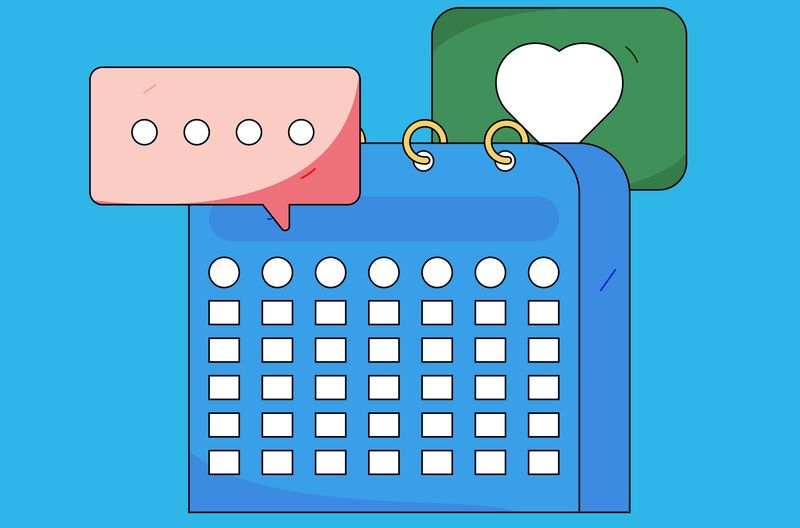
Ever feel like you’re running a one-person party planning committee, complete with personalized reminders for every hangout? If you’re always the one scheduling, confirming, and re-confirming, while your friend barely remembers the details, you’re deep in one-sided territory.
It’s easy to mistake this for caring too much, but nobody should have to carry the mental load of every single get-together. You might catch yourself wondering if the friendship would exist at all if you stopped reaching out.
There’s something exhilarating about letting go of the clipboard and waiting to see who steps up. Spoiler alert: the world doesn’t end. Sometimes, giving up the event planner hat is the most freeing move you’ll make.
4. Their Cancellations Are Basically a Weather Forecast

You know that sinking feeling when you get the infamous last-minute cancellation text, again and again? It’s like you can predict the weather just by whether they commit to plans—40% chance of flakes, 60% chance you’ll be eating that appetizer solo.
Frequent cancellations aren’t just about busy schedules; they speak volumes about where you stand on their priority list. If it’s starting to feel like you’re always the backup plan, the message is clear.
Letting go of the expectation that they’ll show up every time is weirdly refreshing. It’s proof that your time is valuable, and you get to spend it with people who actually want to be there—with or without a weather delay.
5. Your Achievements Only Get a Polite Golf Clap

When you land a new job, ace a test, or finally figure out your taxes, you expect a little confetti—or at least a high five. But with a one-sided friend, your achievements barely register. At best, you get a generic “That’s nice,” before the conversation snaps back to their latest saga.
It’s not about needing cheerleaders for every win, but it’s natural to crave a touch of excitement from people who matter to you. When indifference or jealousy overshadows your happiness, it makes you question just how supportive the friendship really is.
After a while, you start sharing your good news with people who light up just as much as you do. It’s a subtle but powerful shift. Don’t underestimate how good it feels to be genuinely celebrated.
6. Your Boundaries Are Treated Like Optional Suggestions

Boundaries: we all need them, but in a one-sided friendship, they’re often seen as flexible guidelines—if they’re noticed at all. Maybe you’ve said no to late-night calls or made it clear you can’t drop everything at a moment’s notice, only to find your friend pushing right past those limits.
It’s not just about big things, either. Even small boundaries—privacy, time, and emotional space—are regularly trampled. The result? You feel like your own needs are invisible.
It can be awkward at first, but standing firm on your boundaries is a sign of deep respect for yourself. Eventually, you realize that anyone worth your time will honor your limits, not treat them like suggestions on a menu.
7. You’re Always the Listener, Rarely the Speaker
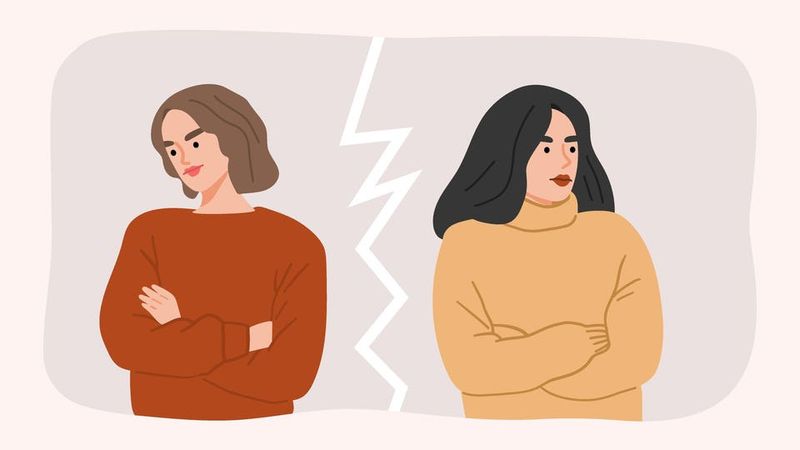
Have you ever left a conversation realizing you know your friend’s life story but they barely know what you did last weekend? It’s like your job is to provide free therapy, but your own stories and struggles never seem to make the cut.
Over time, this turns you into the designated listener. Sure, being a good friend means lending an ear sometimes, but it shouldn’t be a one-way street.
Here’s the breakthrough: you don’t have to play background character in your own life. It’s okay to want a friend who actually listens and cares about your story, too. You deserve the spotlight once in a while.
8. They Only Remember Special Occasions When Reminded

Remember that time you spent hours picking out the perfect birthday gift or planning a surprise, only to have your own big day met with radio silence? One-sided friends often forget important occasions until prompted—if they remember at all.
It’s not about keeping score, but feeling invisible on your own milestone moments stings. A simple text, a call, or a tiny gesture goes a long way. Consistently being overlooked can make you question just how much you matter in their world.
The moment you stop expecting grand gestures and start celebrating yourself, you reclaim those special days. You learn that your happiness doesn’t hinge on someone else’s memory—or lack thereof. Cheers to you, birthday or not!
9. Your Feelings Are Often Brushed Aside

Let’s face it: sometimes you just need to vent or hear a simple, “That sucks, I’m here for you.” But with a one-sided friend, your emotions get the equivalent of a drive-by acknowledgment before the subject is changed.
You might even start doubting whether your feelings are worth sharing at all. This emotional dismissal chips away at your sense of connection and safety in the friendship.
Eventually, you realize your vulnerability deserves more than a quick nod. You become your own best advocate, and that confidence? It’s the beginning of a much more authentic (and supportive) circle.
10. Their Friendship Disappears When You Need Support

You know that friend who can recite every detail of their latest crisis but is mysteriously unavailable whenever you hit a rough patch? Suddenly, they’re too busy, too tired, or just nowhere to be found.
You start to realize that the friendship thrives when you’re the helper, but evaporates whenever you need anything in return. The silence in your hard moments is deafening.
Eventually, you learn that support should flow both ways, like a tag-team wrestling match. When you start expecting reciprocity, you find friends who show up—rain or shine, happy or sad.
11. They Only Reach Out When They Need Something

Ever notice that your phone only buzzes with their name when there’s a favor involved? Car rides, homework help, moving boxes—suddenly, you’re their go-to resource, not their pal.
It starts to feel transactional; you’re more like a personal assistant than a friend. The realization hits that if you stopped offering help, the messages might dry up entirely.
Breaking this cycle is both weird and wonderful. There’s freedom in knowing your worth isn’t tied to what you can do for someone else—you’re allowed to exist just for you.
12. You’re Invisible Unless in a Group
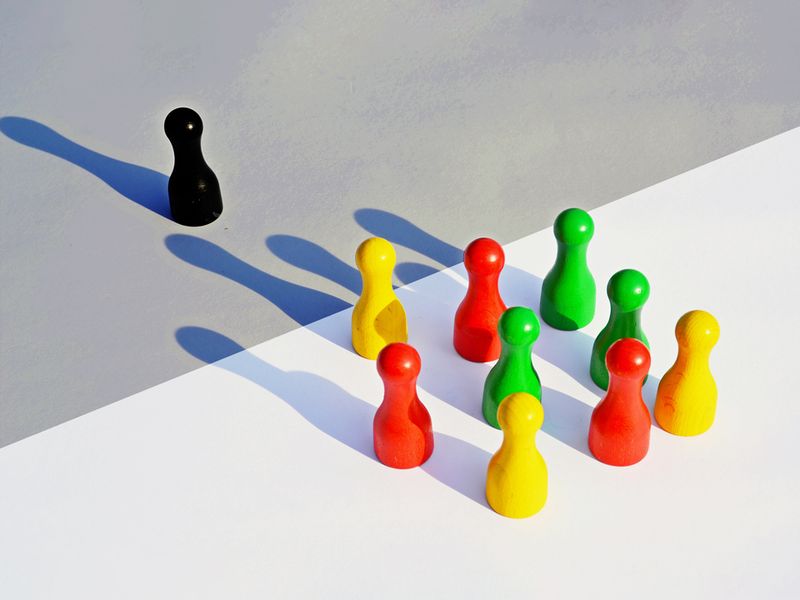
Some friends are social butterflies in groups but ghosts when it’s just you. You might notice they only invite you to big gatherings, and one-on-one time is basically non-existent.
It’s like you’re a prop in their social scene rather than someone worth focused attention. The individual connection just doesn’t seem to matter as much.
Once you realize you want genuine connection, not just group cameos, it’s a game-changer. There are people out there who actually want to know you—just you.
13. Your Opinions Are Treated Like Background Noise

Sharing your thoughts should feel like a conversation, not a broken intercom. If your friend regularly talks over you or dismisses your ideas, it’s like you’re auditioning for a part you’ll never get.
This isn’t just about different viewpoints—it’s about respect. When your input is routinely ignored, you start to feel invisible, or worse, irrelevant.
The moment you realize your voice deserves airtime, everything changes. You find friends who listen, debate, and actually care what you think.
14. They Avoid Real Talk Like It’s Their Job

Deep conversations can be scary, but in a one-sided friendship, vulnerability isn’t just avoided—it’s practically forbidden. You might try to share something genuine, only to be met with jokes, deflections, or a quick subject change.
It makes you feel like you’re always stuck in the shallow end, never quite connecting below the surface. Over time, this lack of depth leaves you craving a more meaningful bond.
Something shifts when you start seeking out those who welcome real talk. Honest conversations lead to richer, more rewarding friendships.
15. You’re Always the First to Apologize
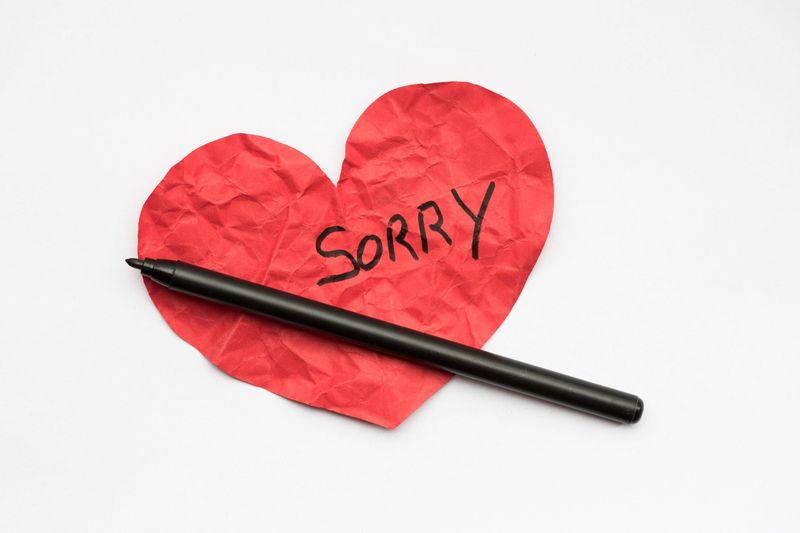
In healthy friendships, apologies go both ways. But if you find yourself constantly saying sorry—often for things that aren’t even your fault—it’s time to pause.
Being the default peacemaker wears you down. You might even start apologizing preemptively, just to keep the peace or avoid drama.
Reclaiming your voice means realizing you don’t have to be the fixer every time. Sometimes, the healthiest thing you can do is let someone else own their part in the mess.
16. You Feel Like an Afterthought

There’s nothing quite like the sting of realizing you’re the afterthought, not the priority. Plans are made without you, or you’re the last to know about big news.
It’s not that you need to be the center of the universe, but nobody wants to feel like a backup option. Over time, this dynamic chips away at your self-esteem.
The silver lining? When you stop settling for scraps of attention, your self-worth skyrockets. Suddenly, you’re making your own plans—and inviting people who treat you like you matter.
17. Your Advice Is Always Ignored (Until It’s Convenient)
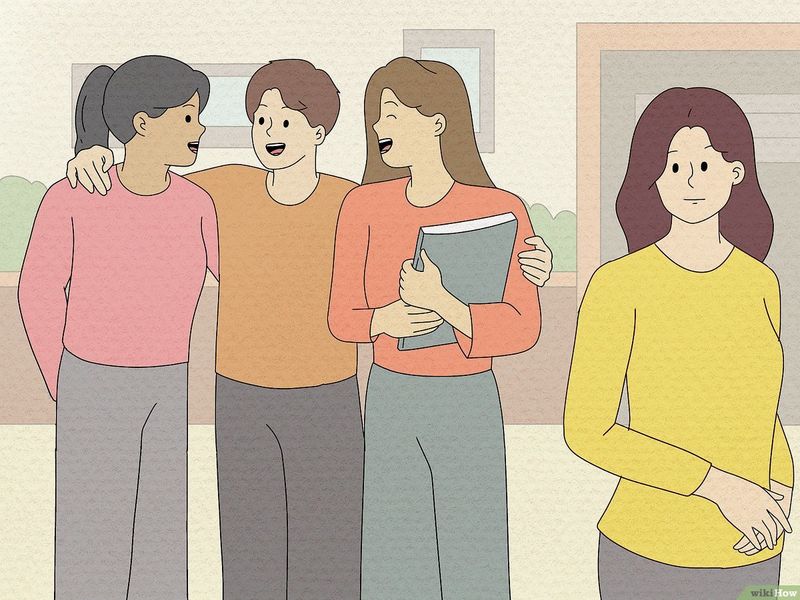
If you’ve ever given thoughtful advice only to have it brushed off—until your friend circles back months later as if it’s their own idea—you know the drill. It’s like your input only matters when it’s easy or trendy.
This pattern makes you wonder if your perspective is valued at all. Over time, it can make you hesitant to share or invest in the friendship.
One day, you realize your wisdom is meant for people who actually want it. Sharing with those who listen is so much more satisfying.
18. You’re Left Out of the Loop

Nothing says “one-sided friendship” like discovering your friend’s big plans through Instagram stories. You miss out on invites, updates, or events, and only find out after the fact (or not at all).
It’s about more than just missing a party—it’s about feeling excluded from someone’s world. The realization stings, but it’s also clarifying.
Finding people who want you in their inner circle, not just on the sidelines, transforms your sense of belonging. You deserve to be in the loop—not just scrolling through it.







